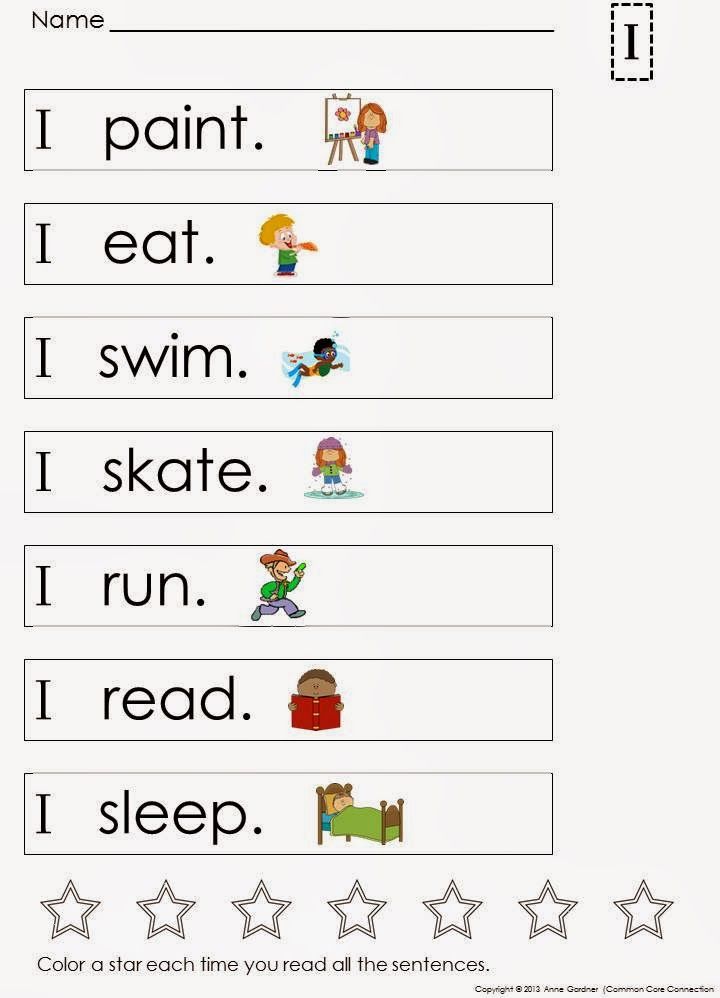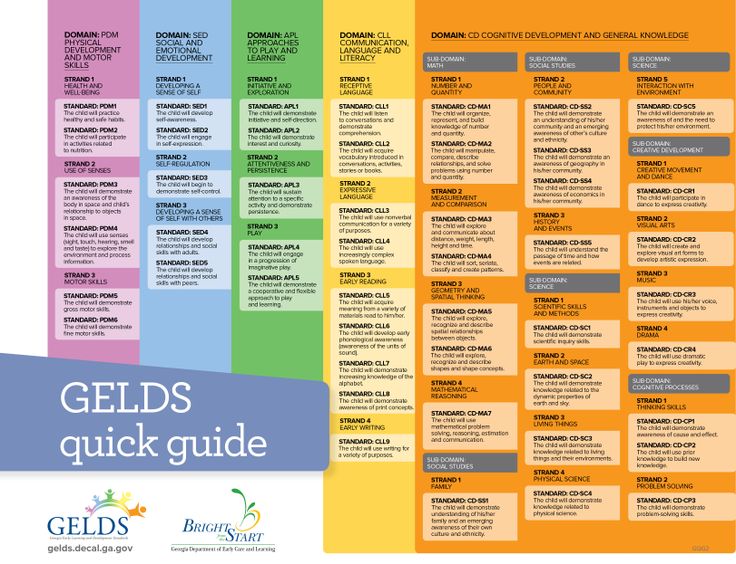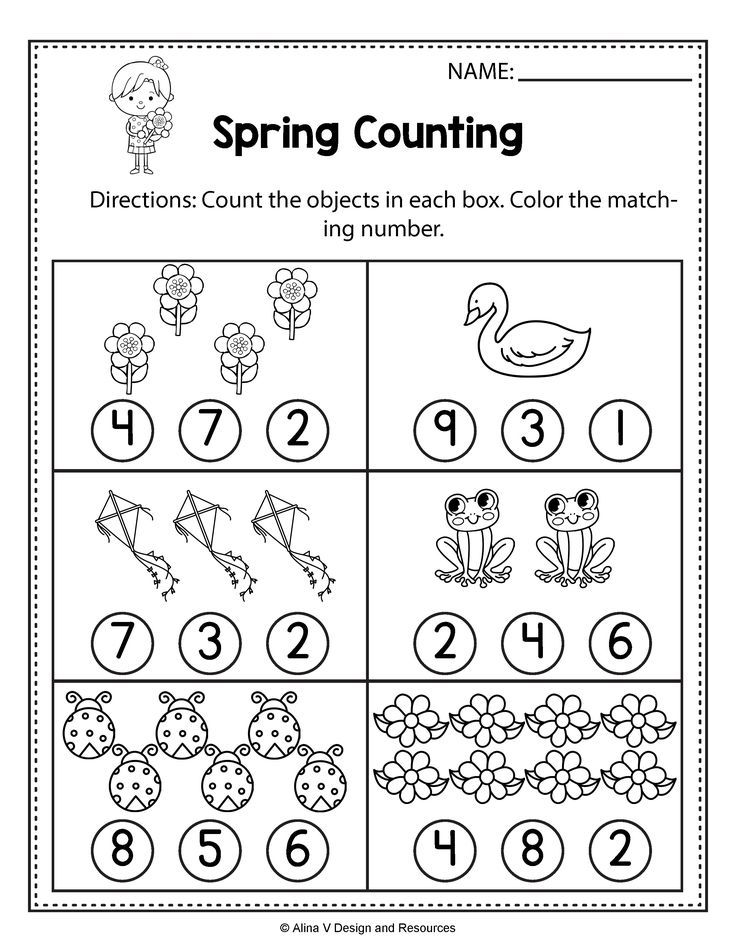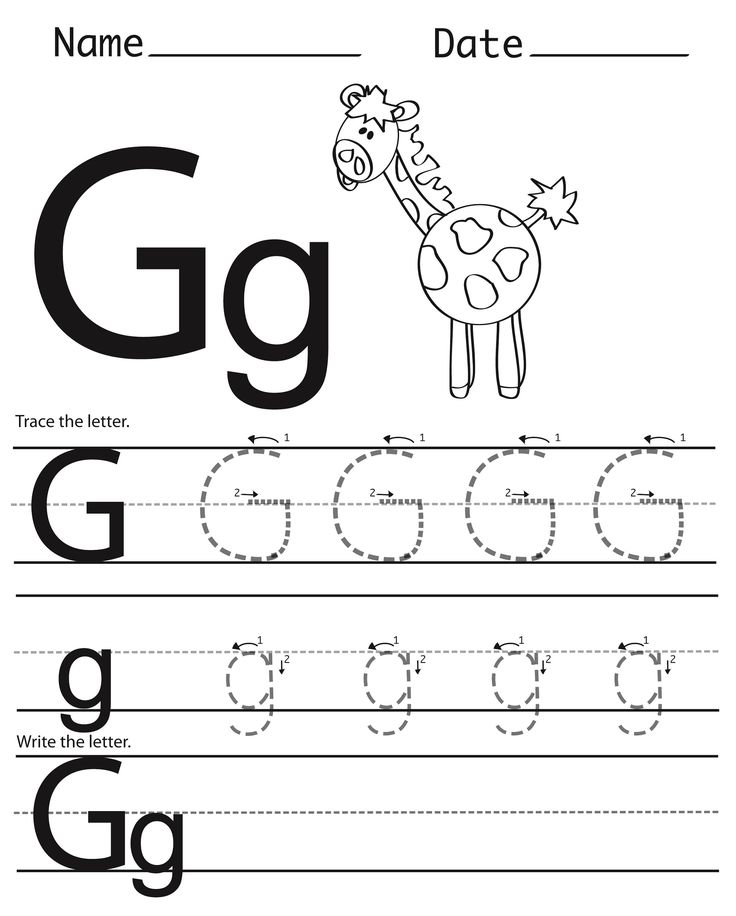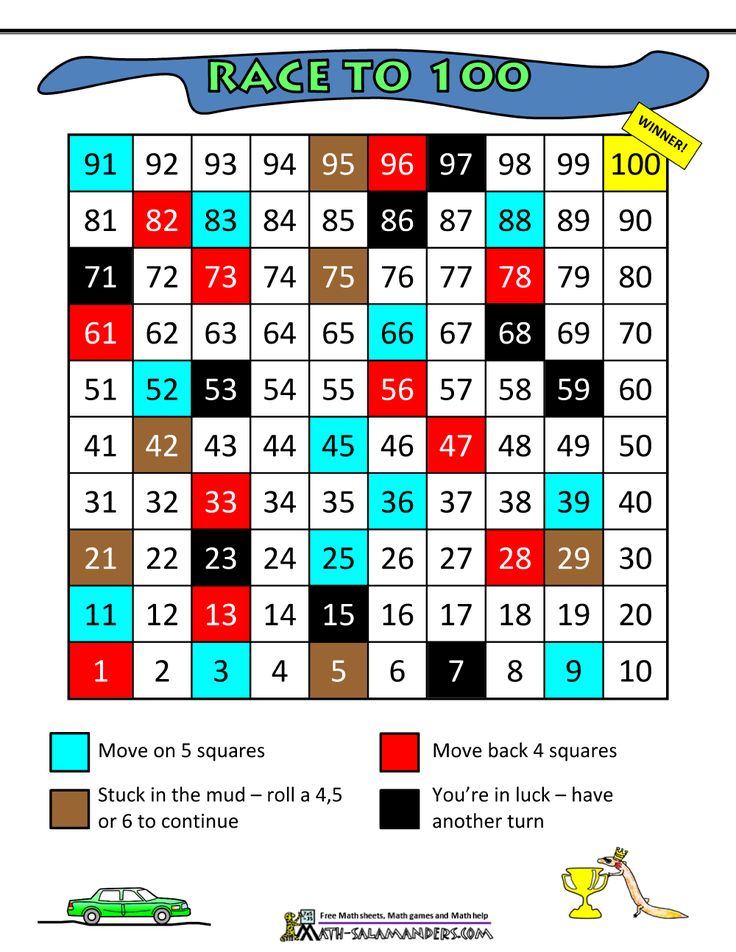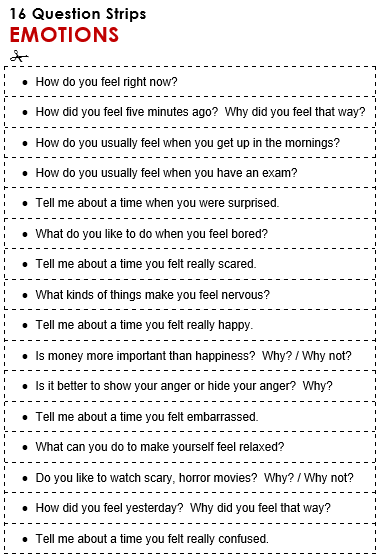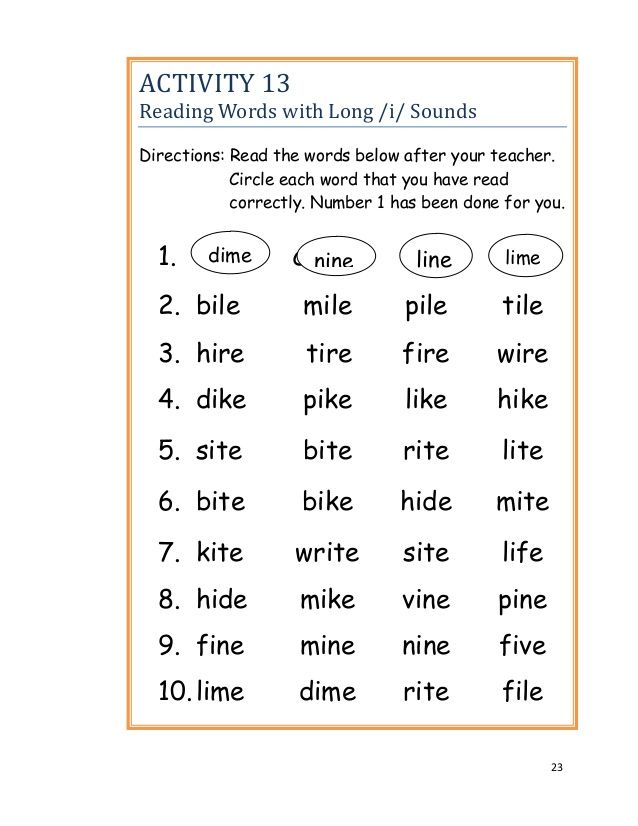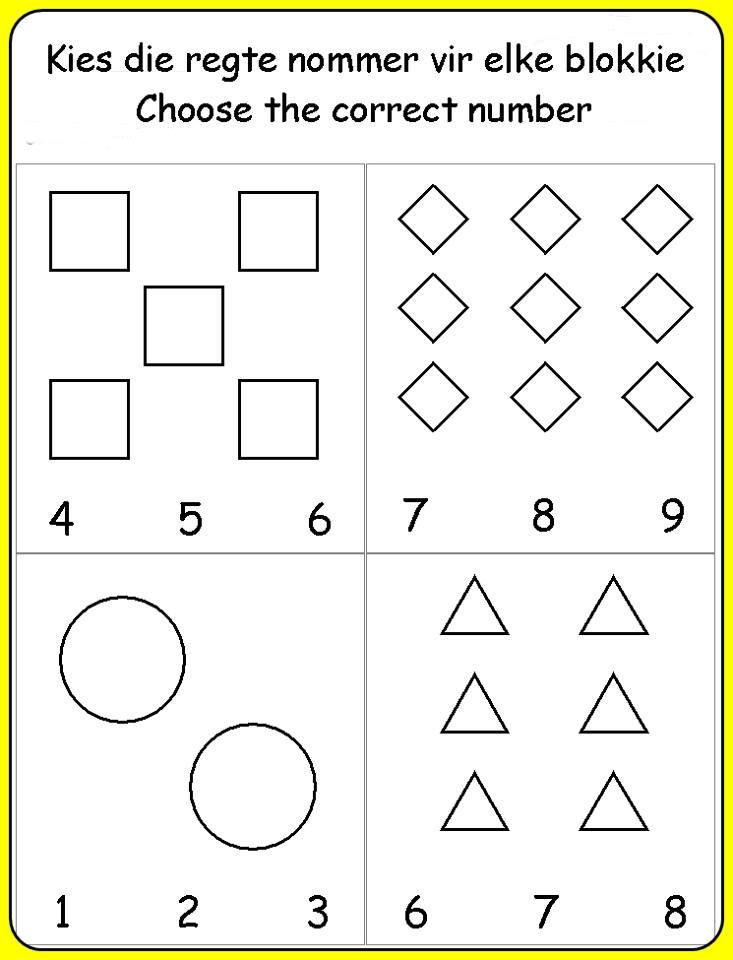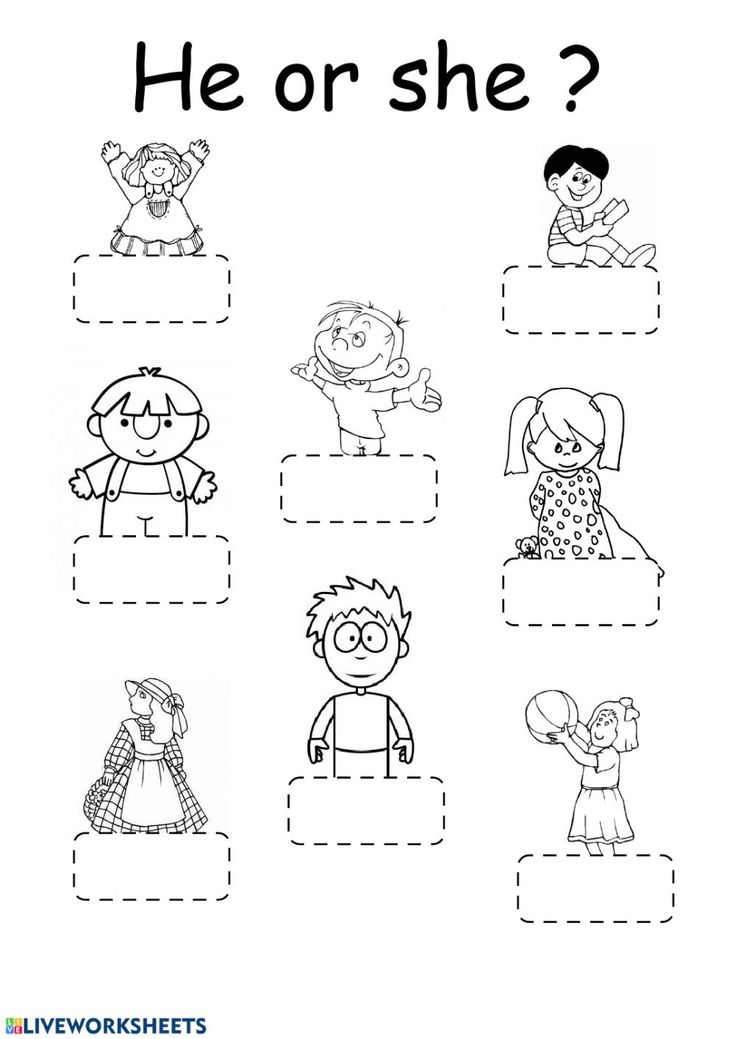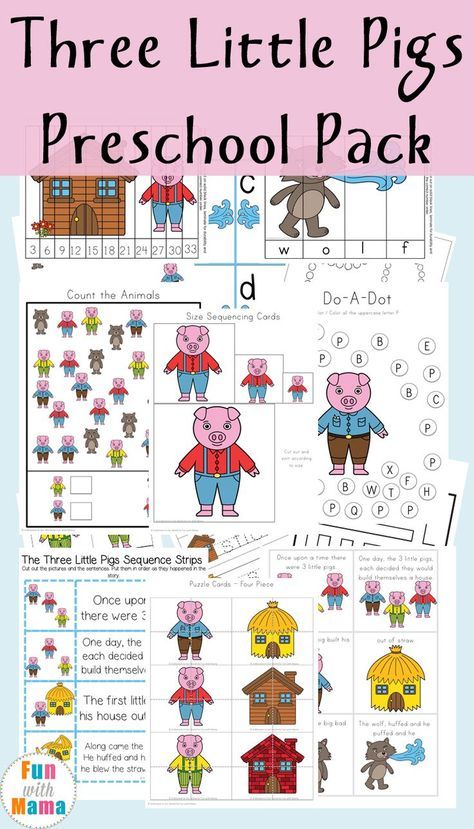Simple word sentences
ENG 1001: Sentences: Simple, Compound, and Complex
A common weakness in writing is the lack of varied sentences. Becoming aware of three general types of sentences--simple, compound, and complex--can help you vary the sentences in your writing.
The most effective writing uses a variety of the sentence types explained below.
1. Simple Sentences
A simple sentence has the most basic elements that make it a sentence: a subject, a verb, and a completed thought.
Examples of simple sentences include the following:
- Joe waited for the train.
"Joe" = subject, "waited" = verb
- The train was late.
"The train" = subject, "was" = verb
- Mary and Samantha took the bus.
"Mary and Samantha" = compound subject, "took" = verb
- I looked for Mary and Samantha at the bus station.
"I" = subject, "looked" = verb
- Mary and Samantha arrived at the bus station early but waited until noon for the bus.
"Mary and Samantha" = compound subject, "arrived" and "waited" = compound verb
Tip: If you use many simple sentences in an essay, you should consider revising some of the sentences into compound or complex sentences (explained below).
The use of compound subjects, compound verbs, prepositional phrases (such as "at the bus station"), and other elements help lengthen simple sentences, but simple sentences often are short. The use of too many simple sentences can make writing "choppy" and can prevent the writing from flowing smoothly.
A simple sentence can also be referred to as an independent clause. It is referred to as "independent" because, while it might be part of a compound or complex sentence, it can also stand by itself as a complete sentence.
2. Compound Sentences
A compound sentence refers to a sentence made up of two independent clauses (or complete sentences) connected to one another with a coordinating conjunction.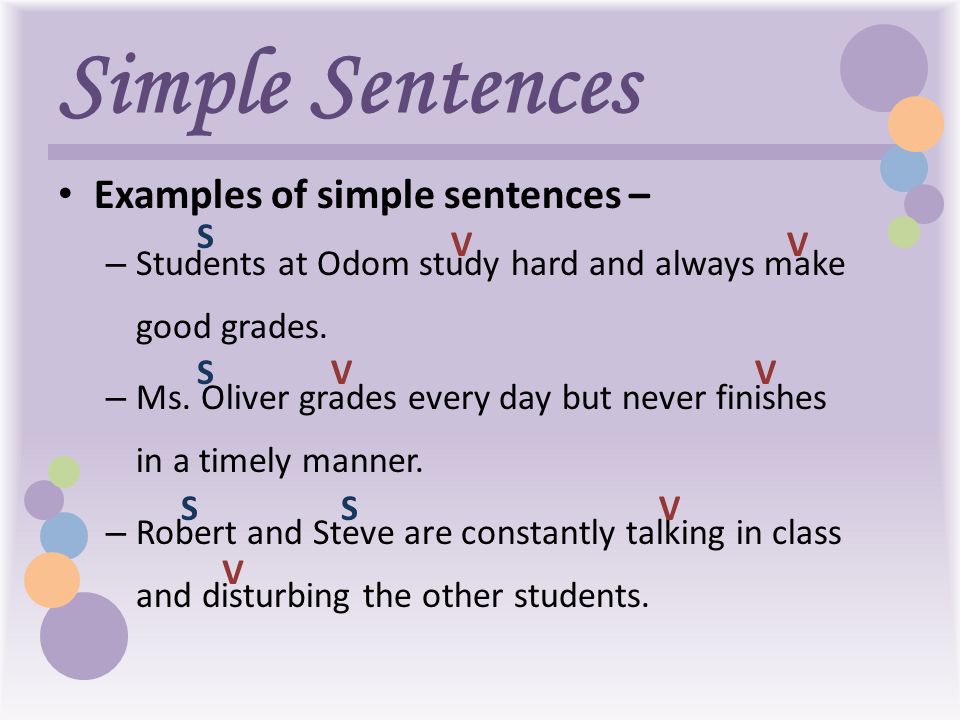 Coordinating conjunctions are easy to remember if you think of the words "FAN BOYS":
Coordinating conjunctions are easy to remember if you think of the words "FAN BOYS":
- For
- A nd
- Nor
- But
- Or
- Yet
- So
Examples of compound sentences include the following:
- Joe waited for the train, but the train was late.
- I looked for Mary and Samantha at the bus station, but they arrived at the station before noon and left on the bus before I arrived.
- Mary and Samantha arrived at the bus station before noon, and they left on the bus before I arrived.
- Mary and Samantha left on the bus before I arrived, so I did not see them at the bus station.
Tip: If you rely heavily on compound sentences in an essay, you should consider revising some of them into complex sentences (explained below).
Coordinating conjunctions are useful for connecting sentences, but compound sentences often are overused.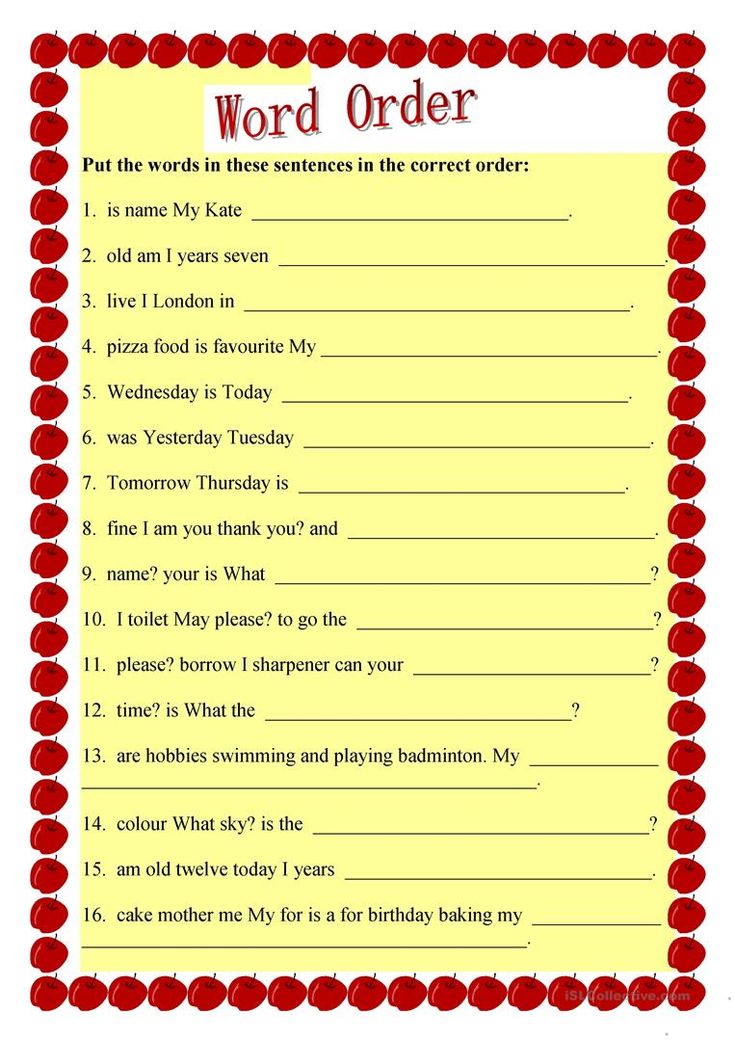 While coordinating conjunctions can indicate some type of relationship between the two independent clauses in the sentence, they sometimes do not indicate much of a relationship. The word "and," for example, only adds one independent clause to another, without indicating how the two parts of a sentence are logically related. Too many compound sentences that use "and" can weaken writing.
While coordinating conjunctions can indicate some type of relationship between the two independent clauses in the sentence, they sometimes do not indicate much of a relationship. The word "and," for example, only adds one independent clause to another, without indicating how the two parts of a sentence are logically related. Too many compound sentences that use "and" can weaken writing.
Clearer and more specific relationships can be established through the use of complex sentences.
3. Complex Sentences
A complex sentence is made up of an independent clause and one or more dependent clauses connected to it. A dependent clause is similar to an independent clause, or complete sentence, but it lacks one of the elements that would make it a complete sentence.
Examples of dependent clauses include the following:
- because Mary and Samantha arrived at the bus station before noon
- while he waited at the train station
- after they left on the bus
Dependent clauses such as those above
cannot stand alone as a sentence, but they can be added to an independent clause to form a complex sentence.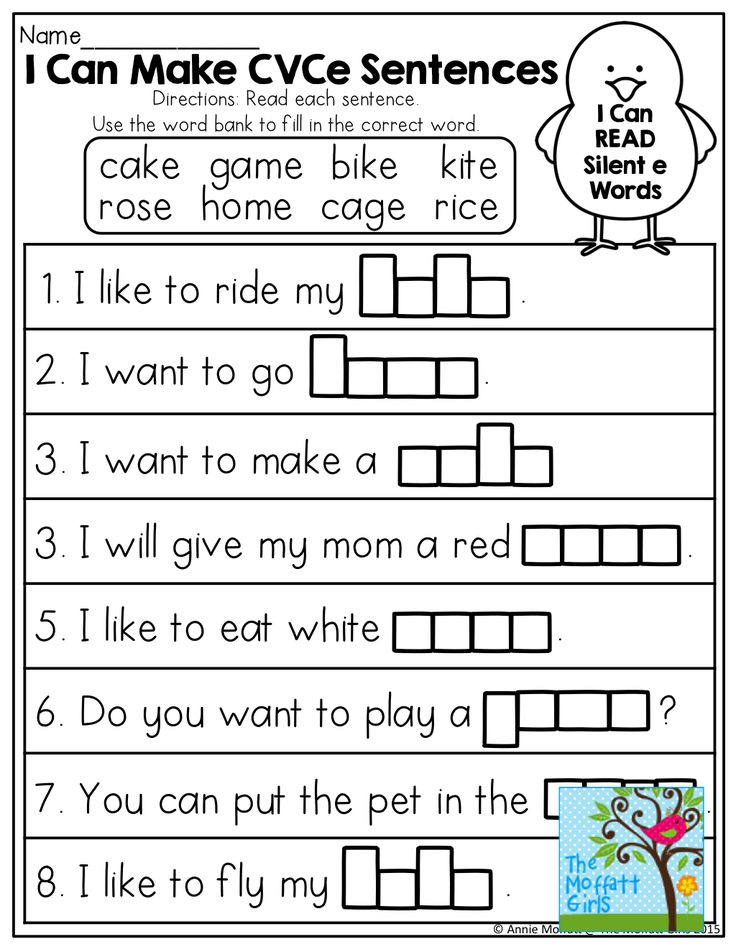
Dependent clauses begin with subordinating conjunctions. Below are some of the most common subordinating conjunctions:
- after
- although
- as
- because
- before
- even though
- if
- since
- though
- unless
- until
- when
- whenever
- whereas
- wherever
- while
A complex sentence joins an independent clause with one or more dependent clauses.
The dependent clauses can go first in the sentence, followed by the independent clause, as in the following:
Tip: When the dependent clause comes first, a comma should be used to separate the two clauses.
- Because Mary and Samantha arrived at the bus station before noon, I did not see them at the station.
- While he waited at the train station, Joe realized that the train was late.
- After they left on the bus, Mary and Samantha realized that Joe was waiting at the train station.
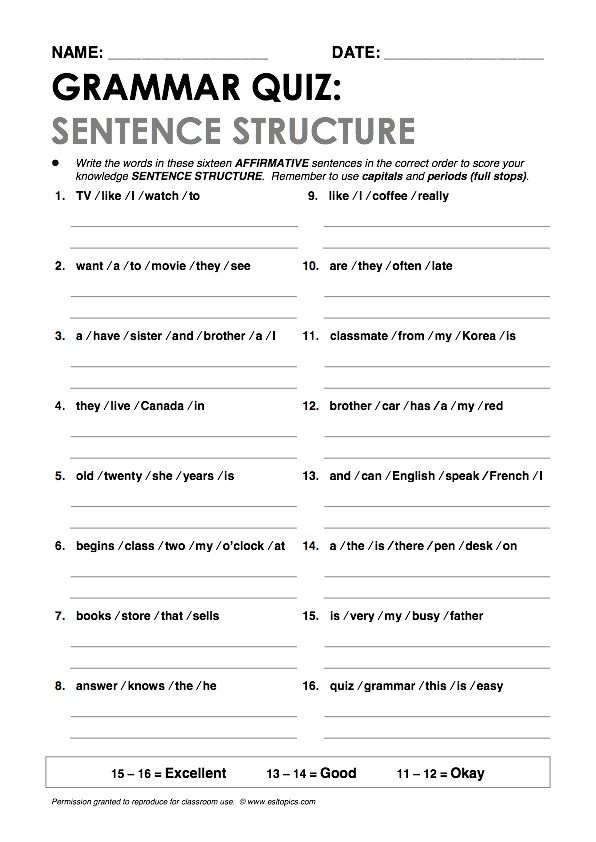
Conversely, the independent clauses can go first in the sentence, followed by the dependent clause, as in the following:
Tip: When the independent clause comes first, a comma should not be used to separate the two clauses.
- I did not see them at the station because Mary and Samantha arrived at the bus station before noon.
- Joe realized that the train was late while he waited at the train station.
- Mary and Samantha realized that Joe was waiting at the train station after they left on the bus.
Complex sentences are often more effective than compound sentences because a complex sentence indicates clearer and more specific relationships between the main parts of the sentence. The word "before," for instance, tells readers that one thing occurs before another. A word such as "although" conveys a more complex relationship than a word such as "and" conveys.
The term periodic sentence is used to refer to a complex sentence beginning with a dependent clause and ending with an independent clause, as in "While he waited at the train station, Joe realized that the train was late.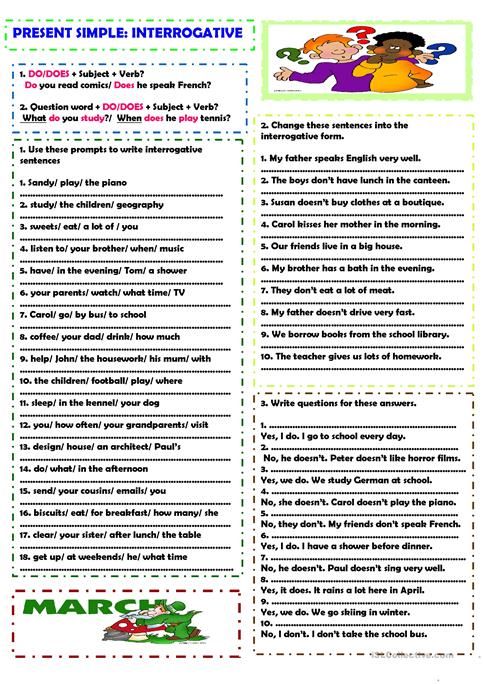 "
"
Periodic sentences can be especially effective because the completed thought occurs at the end of it, so the first part of the sentence can build up to the meaning that comes at the end.
Beginning Sentences with "And" or "Because"
Should you begin a sentence with "and" or "but" (or one of the other coordinating conjunctions)?
The short answer is "no." You should avoid beginning a sentence with "and," "or," "but," or the other coordinating conjunctions. These words generally are used to join together parts of a sentence, not to begin a new sentence.
However, such sentences can be used effectively. Because sentences beginning with these words stand out, they are sometimes used for emphasis. If you use sentences beginning with one of the coordinating conjunctions, you should use these sentences sparingly and carefully.
Should you begin a sentence with "because"?
There is nothing wrong with beginning a sentence with "because."
Perhaps some students are told not to begin a sentence with "because" to avoid sentence fragments (something like "Because Mary and Samantha arrived at the bus station before noon" is a sentence fragment), but it is perfectly acceptable to begin a sentence with "because" as long as the sentence is complete (as in "Because Mary and Samantha arrived at the bus station before noon, I did not see them at the station. ")
")
Watch It!
37 Simple Sentence Examples and Worksheet
DESCRIPTION
student diagramming a sentence
SOURCE
AntonioGuillem / iStock / Getty Images Plus
PERMISSION
Used under license
If you're confused about what makes a sentence simple, these 37 simple sentence examples will help clear things up. This type of sentence can have only one independent clause. It can be long or short, but the basic structure is always the same. There are several types of simple sentences. Read over each type below and use the worksheet to help you practice writing your own simple sentences.
One Subject and One Verb
Simple sentences have one subject and one verb or predicate. Some of these have a direct object or a modifier, but they still only have one subject and one verb. If you need to brush up on these parts of speech, read up on Understanding Subjects, Predicates, and Objects. The following examples show how this works:
The following examples show how this works:
- The cat stretched.
- Jacob stood on his tiptoes.
- The car turned the corner.
- Kelly twirled in circles.
- She opened the door.
- Aaron made a picture.
- I'm sorry.
- I danced.
Advertisement
37 simple sentence examples worksheet
Click to View & DownloadExamples With an Implied Subject
Some simple sentences have a single subject and verb, but the subject isn't stated in the sentence. Instead, the reader knows who the subject is from context. You'll notice that many of these short examples are imperative sentences with an implied subject of "you":
- Run!
- Open the jar carefully.
- Read the directions.
- Don't cry.
- Use common sense.
- Make the best of things.
- Catch up!
These sentences have just one independent clause. Refresh your memory about the difference between independent and dependent clauses if you need clarification.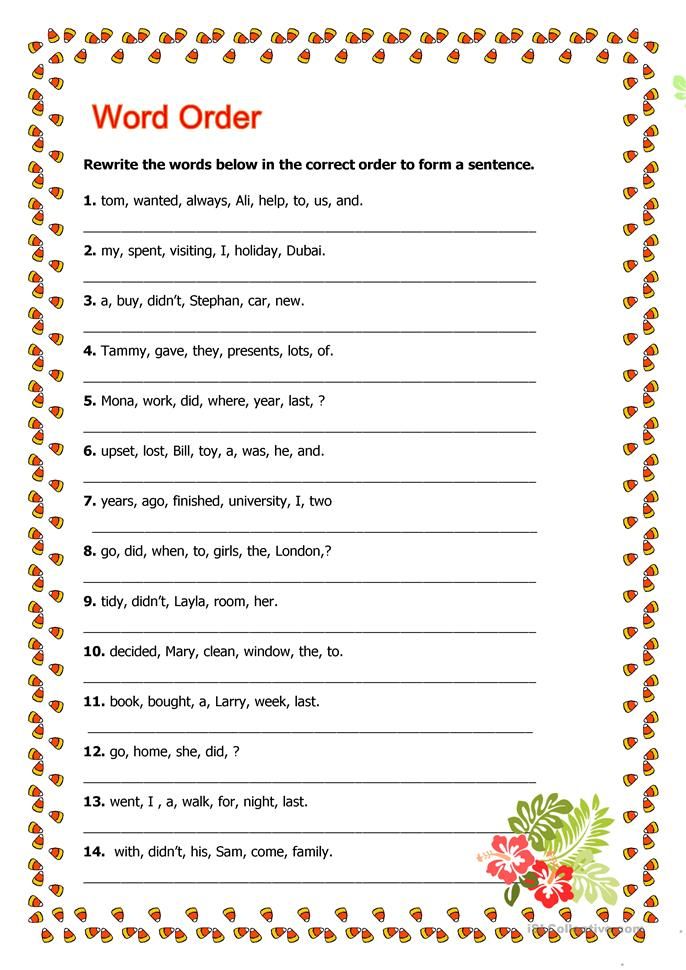
Compound Subject and One Verb
Advertisement
You'll also see simple sentences with a compound subject and one verb. In this case, the subjects are joined by a conjunction like "and" and are all performing the action described in the verb. There may be modifiers and direct objects here as well, as you'll see in some of these examples:
- Sarah and Ira drove to the store.
- Jenny and I opened all the gifts.
- The cat and dog ate.
- My parents and I went to a movie.
- Mrs. Juarez and Mr. Smith are dancing gracefully.
- Samantha, Elizabeth, and Joan are on the committee.
- The ham, green beans, mashed potatoes, and corn are gluten-free.
- The paper and pencil sat idle on the desk.
One Subject and Compound Verb
You'll also see some simple sentences with more than one verb and a single subject. In this case, they are compound verbs. The subject is doing all the actions, and the actions go together. The easiest way to see this is with some examples:
- Misha walked and looked around.
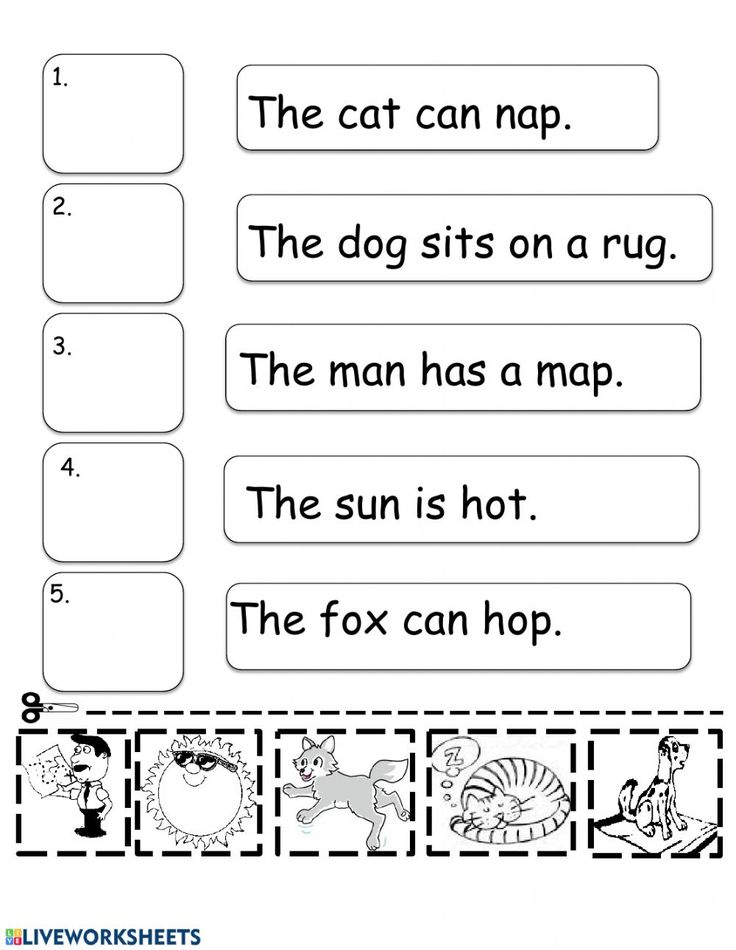
- My mother hemmed and hawed over where to go for dinner.
- He was eating and talking.
- I rinsed and dried the dishes.
- Joe stood up and spoke to the crowd.
Advertisement
Examples of Longer Simple Sentences
Although a simple sentence can be a single word, it can also be much longer. Adding modifiers or multiple direct objects can extend the length of the sentence. These examples are all simple sentences, despite their length:
- The mangy, scrawny stray dog hurriedly gobbled down the grain-free, organic dog food.
- I quickly put on my red winter jacket, black snow pants, waterproof boots, homemade mittens, and handknit scarf.
- The incessant ticking and chiming echoed off the weathered walls of the clock repair shop.
- Nervously, I unfolded the wrinkled and stained letter from my long-dead ancestor.
- Into the suitcase, I carelessly threw a pair of ripped jeans, my favorite sweater from high school, an old pair of tube socks with stripes, and $20,000 in cash.
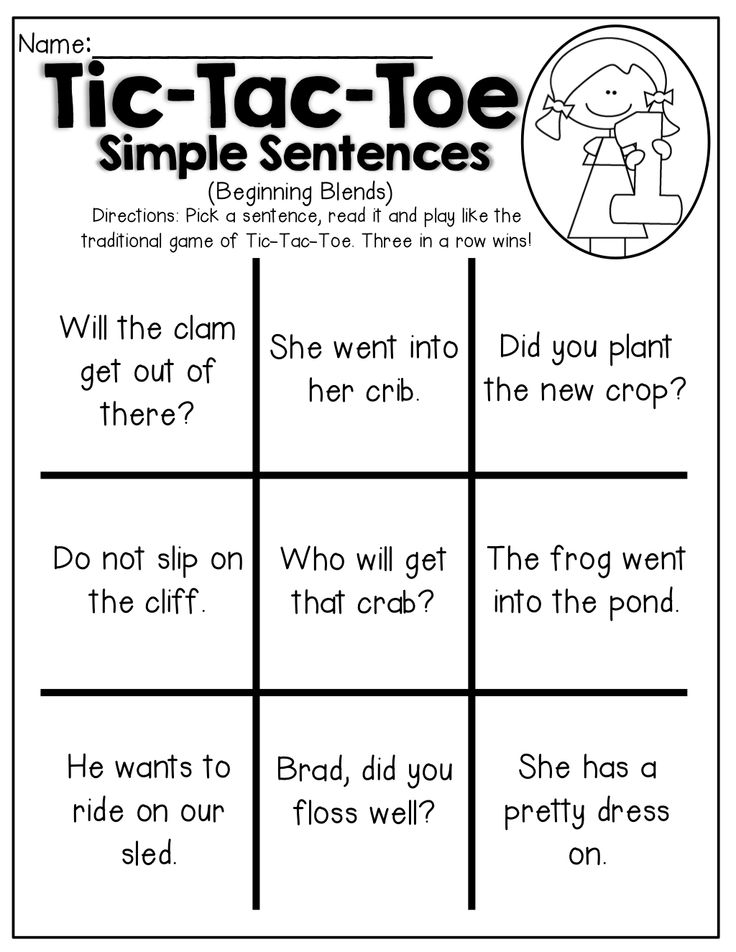
Simple Sentence Examples From Literature
Writers have been using simple sentences as long as people have been writing. Consider these examples from literature:
- "The Spirits of All Three shall strive within me." A Christmas Carol by Charles Dickens
- "I was the more deceived." Ophelia in Hamlet by William Shakespeare
- "Neither boy spoke." The Adventures of Tom Sawyer by Mark Twain
- "Call me Ishmael." Moby Dick by Herman Melville
Understand Sentence Structure
Now that you know about simple sentences and have seen some examples, take a moment to learn about other sentence types like compound sentences and complex sentences.The more you know about how sentences are put together, the better your writing will become.
Simple and complex sentences. 5th grade
- Shaforostova Natalya Grigorievna
Sections: Russian language
Class: 5
Lesson objective: know structural difference between simple and complex offers; types of complex sentences way of linking simple ones into complex ones. nine0009
Tasks: be able to distinguish between simple and complex sentences, define the boundaries of parts in complex sentence, put signs correctly punctuation between parts of a complex sentence; reveal the spiritual and moral content "Tiny" by A.I. Solzhenitsyn; teach based on them. students in the usual, everyday phenomena to see their inner side and moral meaning, to cultivate interest and love for the Russian language.
Equipment:
- Works by A.I. Solzhenitsyn, textbook "Russian language" for grade 5, edited by T.
 A. Ladyzhenskaya, M.T. Baranova and others
A. Ladyzhenskaya, M.T. Baranova and others
Lesson progress
1) Teacher's introduction:
Today we are going to the verbal jungle for searching for simple and complex sentences. But in the jungle be dangerous so you must be armed with knowledge, that is, each of you must know the difference between simple and complex offers. nine0009
2 ) Step #1 of our journey - language warm-up
"Verbal herbarium"
- 1 option: Depth, flipping, our, history, you, leafing through.
- Option 2: She, wonderful, opens her own, and, pages.
Reference:
- Read your sentences.
- Option 1: Scroll through, you scroll through the depths of our stories.
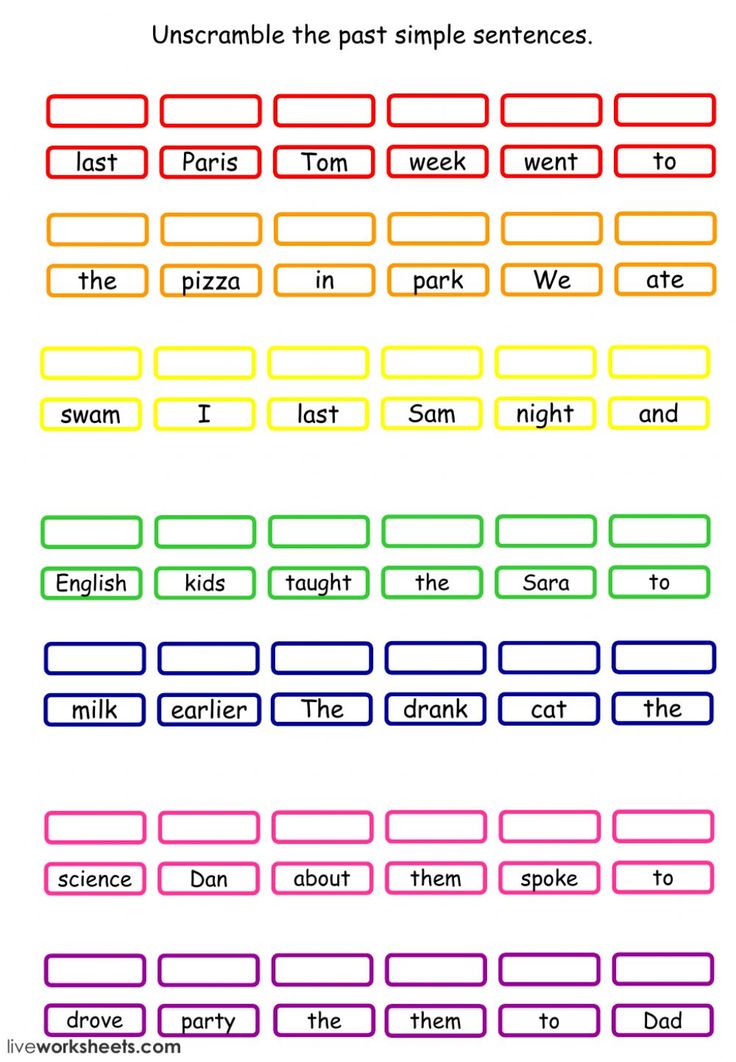
- Option 2: And she opens her wonderful pages.
(Spellings are explained and basic grammar)
- In the jungle you have to be careful and only go step. nine0009
3) Step #2 "Hunter's arsenal during the search simple and complex sentences "(Introduction to new topic)
- proposals of the first and second options.
You leaf through, you leaf through the depths of our history, and it opens its wonderful pages.
- How many grammatical bases are in our offer? (two)
- What is the result of a simple sentence or complex? (complex)
- What is the identification of this suggestions? (presence of two grammatical bases)
- What is a means of communication? (union and)
Output:
- Which sentences are called complex and which simple?
4 ) Step #3 " Someone will change their mind".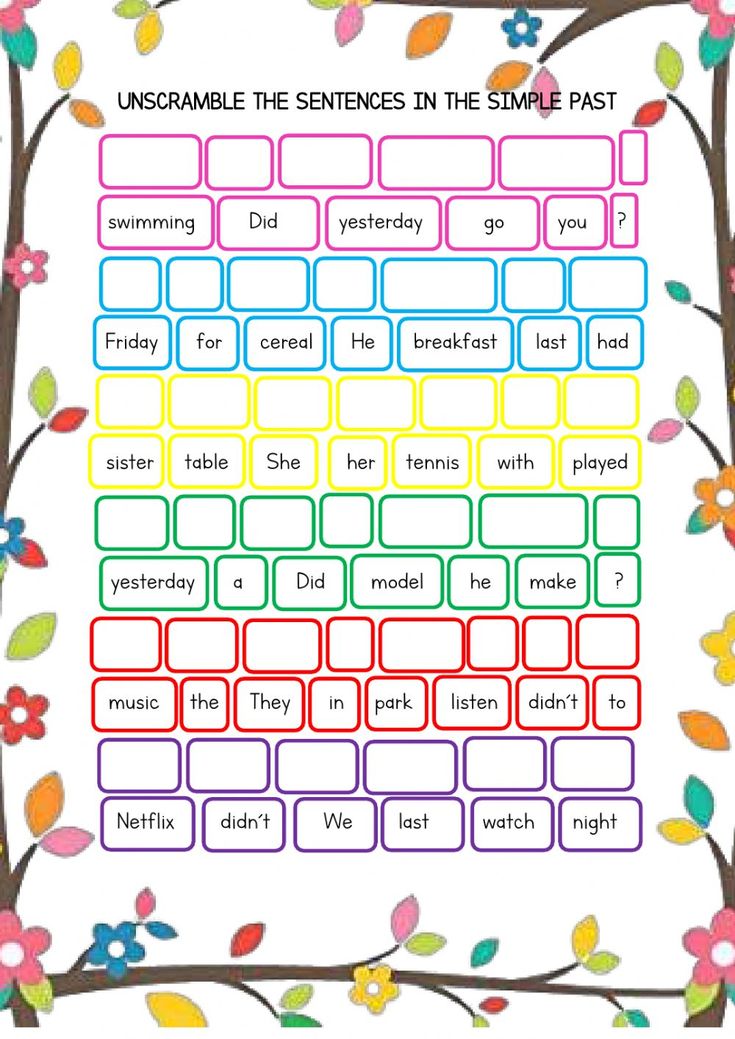 nine0016 (Skill development)
nine0016 (Skill development)
Task : write out complex sentences with punctuation marks explain the missing spellings.
The hot summer has passed and autumn has come. stood on clear days the birds were preparing (for) departure. (C) morning was fog but by breakfast the weather cleared up. Approximately .. huddled up to .. the end of September and the cold is still (not) advanced. A downpour began .. and we walked .. pressed to side..ke. The storm ended in the evening. nine0009
- Checking the work.
5) Step #4 "Hunters for complex sentences"
(Explanatory dictation on the text A.I. Solzhenitsyn)
Collective farmers bring milk, cottage cheese, tomatoes in a backpack.
It holds so much weight that even through his shoulder cannot bear his quilted jacket.
Women throw the braid to the middle of the back, and the belt is tied over the head. Then gravity is evenly distributed over two shoulders and chest.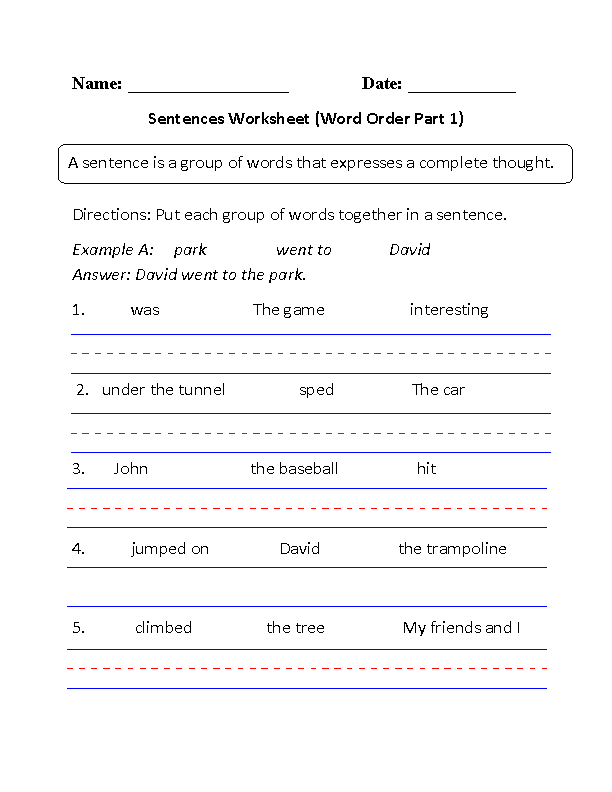 nine0009
nine0009
Reference:
- Explain punctuation.
- Underline conjunctions and main members of the sentence.
Mutual check of works.
6) Step No. 5 "The work of cryptographers with the text"
(Reinforcement of the studied)
Graphic dictation
According to the text by A. Solzhenitsyn "The ball".
nine0016There is a boy in our yard holding a dog A ball on a chain, he planted it like a kitten.
I once brought him chicken bones, and then the boy let the poor fellow run around the yard. Snow in the yard fluffy, plentiful. The ball is rushing about jumping like a hare, then on its hind legs, then on front:
He ran up to me, jumped me, sniffed the bones:
Sharik asked to be given only freedom.
Job.
Listen to the text. nine0009
Make and write down sentence patterns.
Key operation check.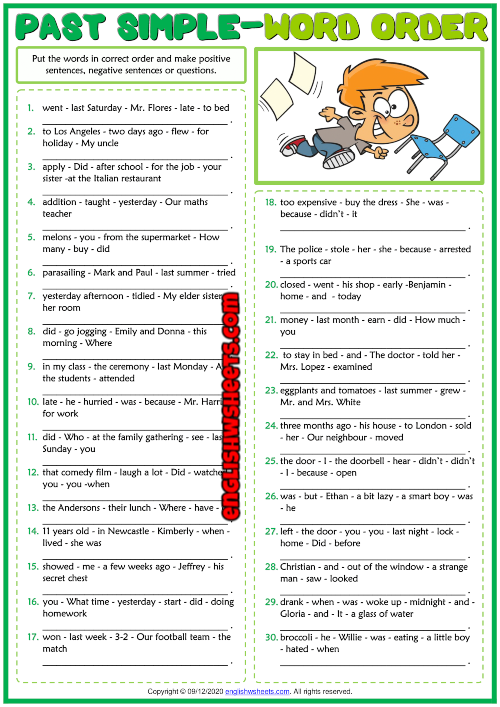
- What topic is the author of this test bringing up?
7 ) Step #6 "Pathfinders in the verbal jungle"
(Creative work) graphic dictation:
".. The ball asked to be given only freedom".
Summary of the lesson.
- Which sentences are called complex and which simple?
- What is the identification sign of a complex suggestions?
Homework :
1. repeat the theory, paragraph 46.
2. complete the reasoning essay.
5 verbal and linguistic games in Russian language classes
A valuable method of stimulating interest in learning is the method of using various games and game forms of organizing cognitive activity in the classroom with students and schoolchildren.
The most budgetary game form is a language game, part of which are verbal (not acting) and verbal-role-playing games.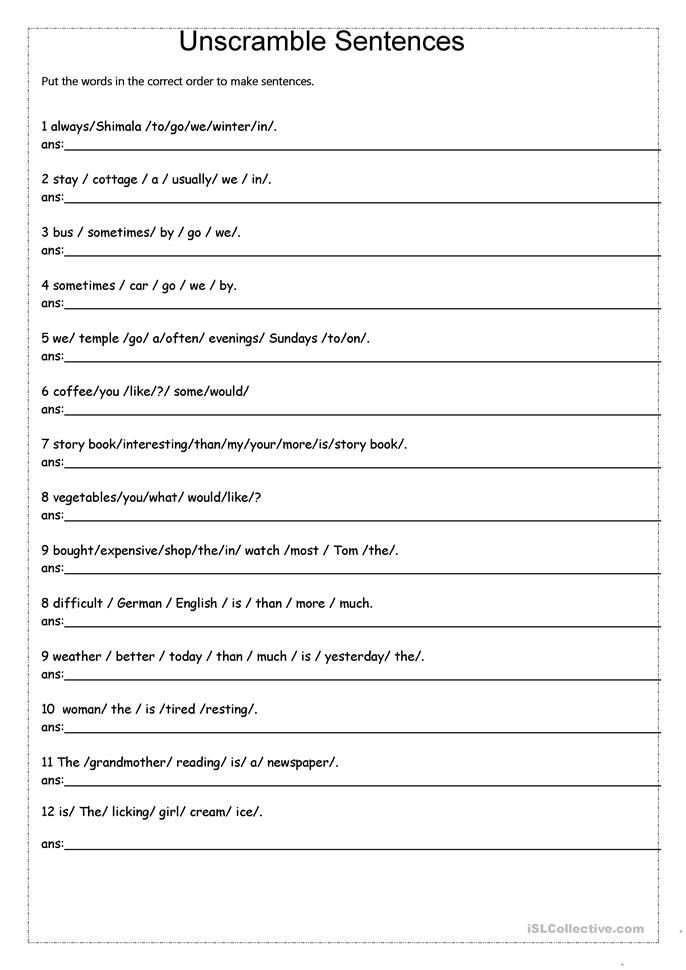
It is also expedient to single out linguistic educational games.
What's the difference?
Word game is a word game. The game takes place exclusively through the speech interaction of the players. The word game is aimed not only at the development of language flair, but also at the development of attention and memory.
Word-role-playing games - a kind of role-playing games with a complete absence of a material component: the game takes place exclusively through the verbal interaction of the players describing the actions of their characters, and the master describing the realities of the surrounding world and the reactions of master characters. nine0276 Linguistic game is a language game related to language learning and speech enrichment, with the development of logical thinking, communicative features of speech in terms of taking into account lexical, grammatical, orthoepic, syntactic features of speech.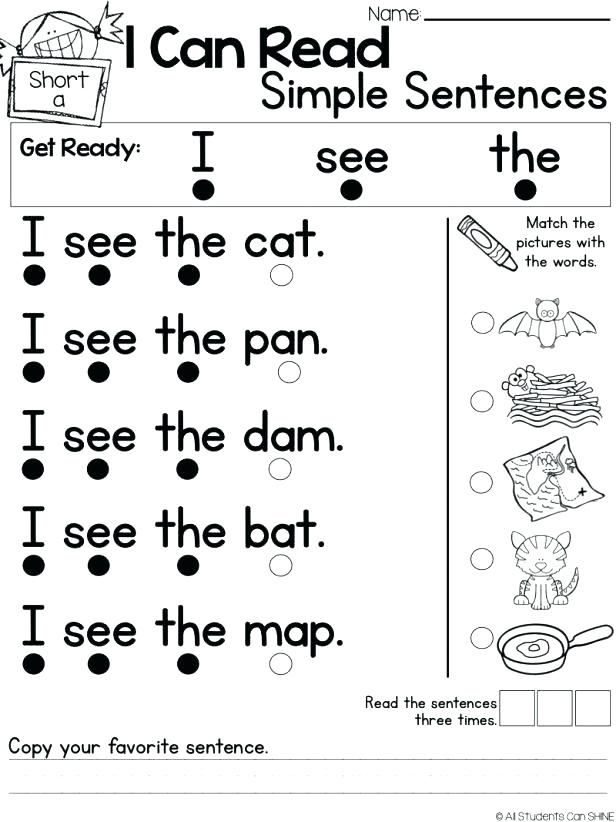
Therefore, linguistic games are: orthoepic, lexical, grammatical, syntactic.
Linguistic game “Hidden Motives”
Surely, in the life of every person there was a situation when he committed some act and could not explain why he acted one way or another. Unraveling possible hidden motives is possible through a consistent analysis of previous events. nine0009
What we are working on: speech logic.
Rules: Divide the group into pairs (sometimes it's easier to unite not in pairs, but in threes). In each pair, one of the participants tells a situation that he cannot explain. The partner, through leading questions, tries to find out the facts, to connect them into syllogisms.
Syllogism is “a form of inference, reasoning, when a third, conclusion, is derived from two given premises or judgments.”
For example, all students take exams in the summer.I am a student, so I have exams in the summer. nine0009
In the second round, the interlocutors change places. Then comes reflection.
Word game “One day in the life”
The essence of the game: choose any profession with the students. Together you make up a story from some nouns (verbs, adjectives) about the working day of a professional.
For example, a story about a teacher's day: call-breakfast-lesson-question-answer-five-teacher-director-scandal-lesson-call-home-preparation-sleep.
Important condition: before naming a new noun, each player must repeat everything that was named before him. Then the story will be perceived as a holistic work. To better remember the named nouns, I advise you to carefully look at all the speakers, as if linking the word with a specific person.
Word game “New Vocabulary”
Usually we play in a circle with students as a warm-up at any lesson.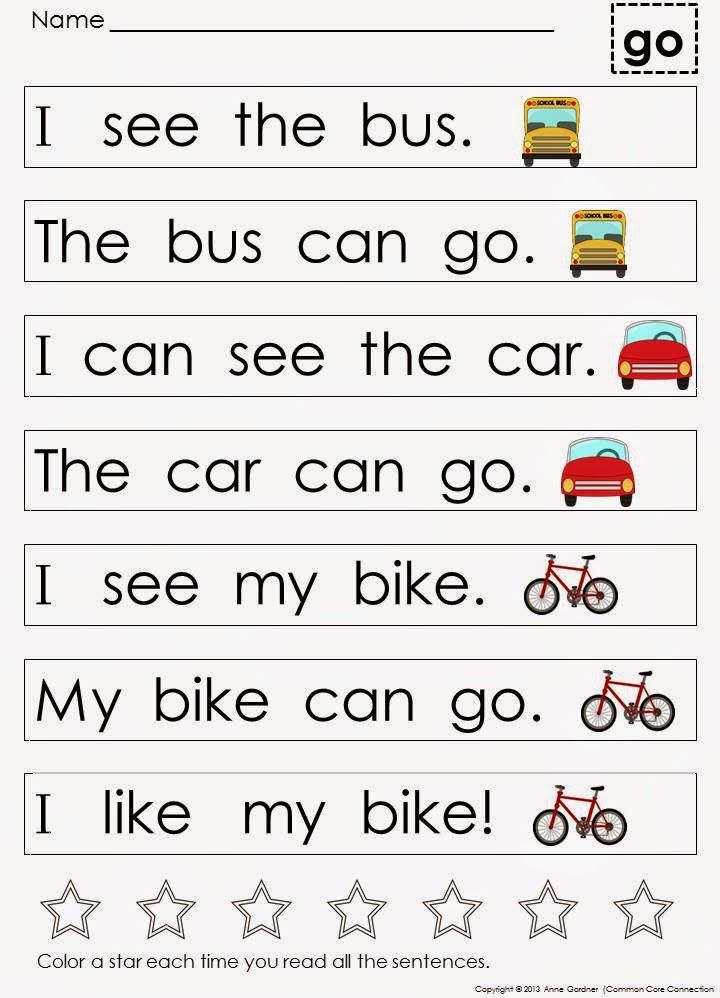
The essence of this game is to come up with new meanings for ordinary and all familiar words.
For example: a suitor - a lover of fish soup, a monster - a volcano, a priestess - a woman who loves to eat, etc.
The one who picks up more interesting words will win. The time allotted for preparation is agreed in advance.
Taboo word game
When I need to talk to listeners/students and students, or lead them to the topic of the lesson, or review previously learned material, I use the word game “TABU”. nine0276 The rules are simple: the student gets a card with the word written on it. It needs to be explained. And under this word, or next to it, there are several more that cannot be used in the explanation.
Other students must guess this word.
It is better to prepare cards on your own - for a specific topic (for example, an essay-reasoning - for students, or general scientific terminology - students / cadets).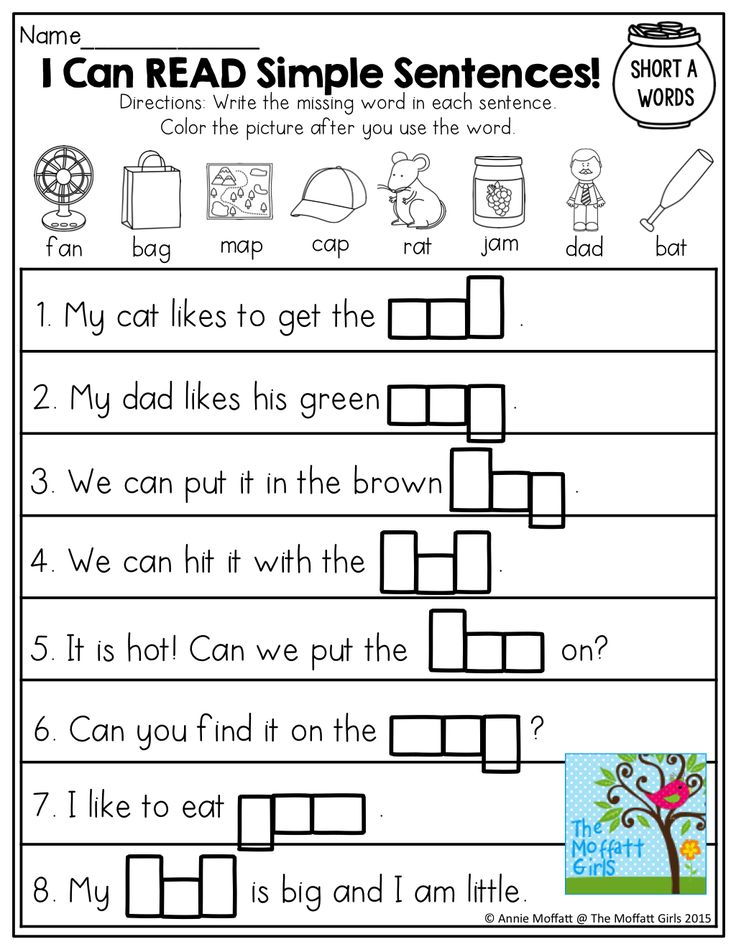
Linguistic game “Sound Images”
The teacher reads/displays the words of the writer E. Zamyatin:
“Every sound of the human voice, every letter in itself evokes certain ideas in a person, creates sound images. I am far from assigning a strictly defined semantic or color meaning to each sound, but
Sound [r] clearly tells me something loud, bright, red, hot, fast.
[l] – about something pale, blue, cold, smooth, light.
Sound [n] - about something tender, about snow, sky, night:
The sounds [d] and [t] are about something stuffy, heavy, fog, darkness, musty.
Sound [m] - about sweet, soft, about mother, about the sea.
With [a] - latitude, distance, ocean, haze, scope are associated.
C [o] - high, blue, bosom:
C [and] - close, low, squeezing.
Task: come up with words starting with the letters RLNDTMAOI. Ask students and pupils to voice their sound images.
Word game “Letters-Letters”
One student guesses a word to another, which he must explain to the others, but he can only use words starting with one letter, for example, “p” (any, except for the same root) .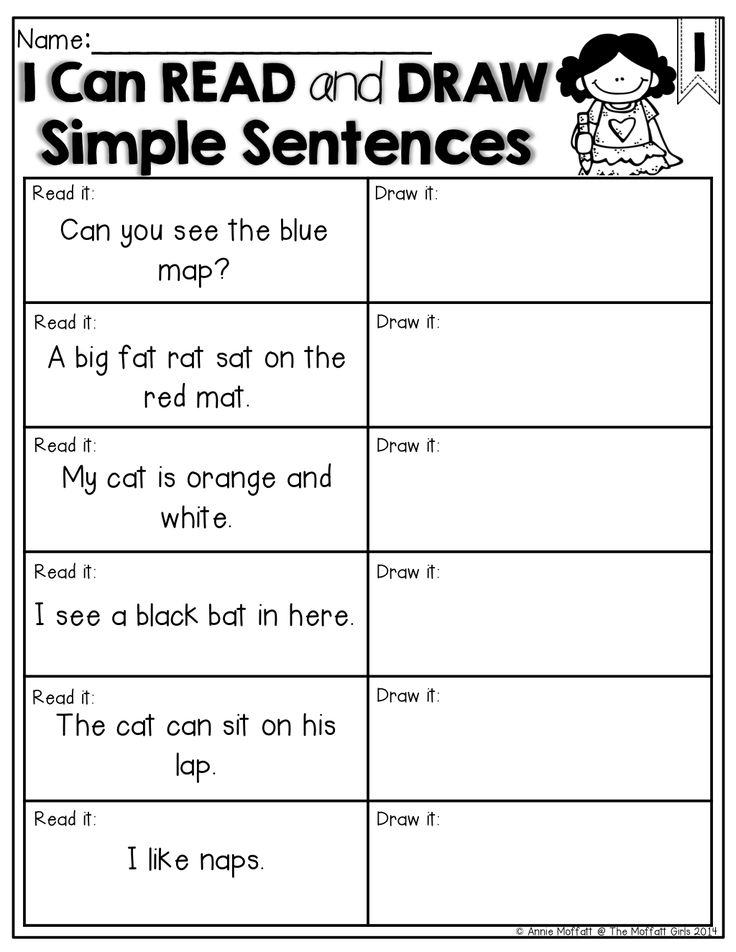 That is, the word “house” will have to be explained, for example, as follows: “built - I live”. nine0009
That is, the word “house” will have to be explained, for example, as follows: “built - I live”. nine0009
If it was not possible to guess right away, you can throw in additional associations: “building, premises, space, the simplest concept…” And at the end add, for example, “Perignon” – by association with Dom Perignon champagne.
If the guessers are close to winning, then the teacher will need comments like “about”, “about”, “almost right” - or, in the opposite situation: “bad, wait!”. Usually, after the word is guessed, the explainer comes up with a new word and whispers it into the ear of the guesser - he becomes the next leader. nine0009
Word and language games are a great way to improve the efficiency of your classroom activities. They can be used at various stages of the lesson: at the beginning - to create a favorable atmosphere and repeat the material that will be later used in speech, in the middle or end of the lesson - to relieve fatigue, at the end of the lesson, when there are a few minutes left before the call and there is no point start some more serious exercise.